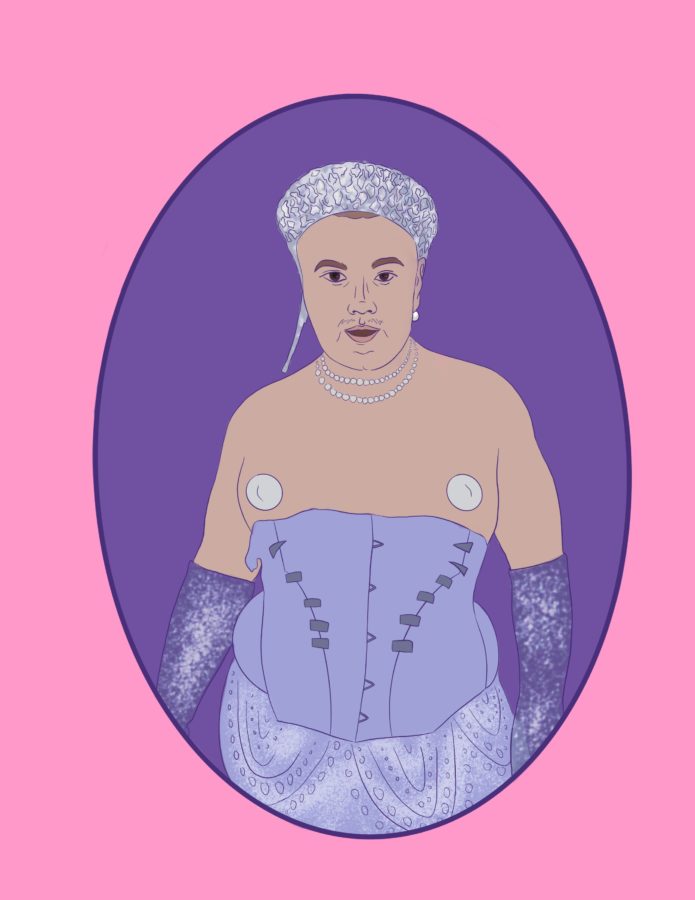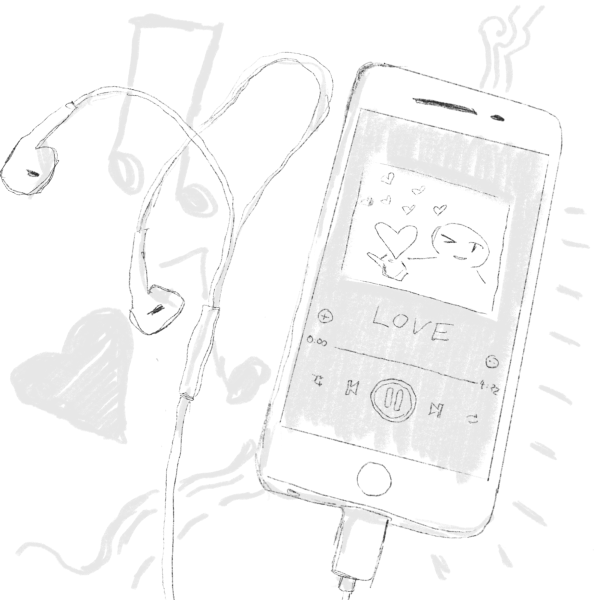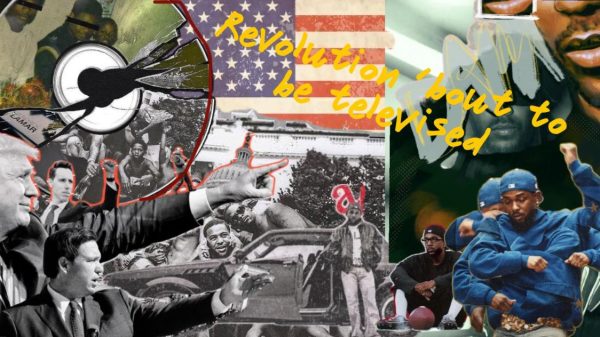Authenticity, identity and acceptance in the public eye
Recent criticism of Sam Smith speaks to conditional acceptance of queerness
For Sam Smith, the mere act of existing is radical. From coming out as gay in 2014 and genderqueer in 2017 to announcing their usage of they/them pronouns in 2019, their journey towards realizing their identity has been public since their early twenties. A successful singer and songwriter since 2012, Smith’s stages of self-discovery are inextricably linked to the evolution of their music.
Smith’s debut album “In the Lonely Hour” exists in stark contrast to their latest album “Gloria.” While the Smith who released “In the Lonely Hour” presented more masculine and reserved, the Smith who released “Gloria” has proven to be the most femme and outwardly queer version of themself we’ve seen.
Even the album cover for “Gloria” is a testament to Smith’s personal growth. They have recently spoken about struggling with body dysmorphia and the journey towards feeling comfortable in their own skin, and how posing for the album cover topless was a significant milestone for them.
This is an era of confidence and self-acceptance for Smith. It’s been met with decent support from their fans, plus an influx of criticism and backlash.
Smith’s recent work, specifically their music video for “I’m Not Here to Make Friends” and their performance at the Grammys, has received significant amounts of backlash. Calls of “too sexual,” “satanic” and even “groomer” come from the streets, talk shows and Twitter, criticizing everything about Smith. One Twitter user posted a screenshot from the “I’m Not Here to Make Friends” video, commenting on the corset, nipple tassels and bejeweled accessories Smith wears.
“Imagine putting this outfit on, standing in front of a mirror, seeing this reflected back at you and thinking: ‘I look AMAZING,’” they write facetiously.
It’s not entirely clear here whether this person means to criticize the outfit for its femininity or for the size of the person wearing it, but the fact that it could be both indicates just how offensive some people find expressions of both queerness and body confidence to be. Being neither cisgender nor conventionally thin, part of me wonders if any amount of Smith toning down their performances and presenting conventionally would be enough to stop them from receiving hate.
Smith’s Grammys costume, a shiny red latex number with a horned top hat, matched the theme of their performance of “Unholy” — a song that made Smith and Kim Petras the first non-binary and trans artists to win best pop duo. Brad Polombo, in an opinion piece for Newsweek, claims that the devil imagery in their performance was so offensive that it will overshadow their monumental win.
“I think the performance was tone-deaf, counterproductive and frankly, remarkably unoriginal,” he writes before going on to claim that “an immeasurable but significant number of [people] will now be left with the impression, conscious or subconscious, that the LGBT community is not made up of mostly normal people like them with some differences, but a movement anathema to their values and even their god.”
Smith’s recent work is definitely “out there,” but I wonder if it’s necessarily important to be regarded as “normal.” Moreover, I wonder if devil imagery and fashion offenses are truly what prevents Smith from being seen that way. I don’t think it’s outlandish to posit that these grievances people are having with Smith are actually misnamed criticisms of their queerness.
Take the “I’m Not Here to Make Friends” video. The outrage surrounding it had some people calling for it to be age restricted, but the video is hardly out of character for its genre.
Rosie Nelson, a lecturer on gender at the University of Bristol, writes about the intersection of queerphobia and fatphobia in this music video in an article for The Conversation.
“Smith does not have a figure conventionally associated with pop stardom. While it would be far from true to call them ‘fat,’ they have experienced significant fatphobia in the calls for them to cover up and show modesty,” Nelson writes.
Not only does Smith dress in defiance of the gender roles they’ve been prescribed, but they do so in a body that deviates from the thin ideal. This intersectionality, and the fact that Smith is sticking it to two societal norms at once, undoubtedly amplifies the criticism that they receive. But it also makes the video even more important in terms of representation.
Maybe Sam Smith’s music, style and persona are not your cup of tea — I’m not trying to imply that all dislike of Smith is inherently homophobic and fatphobic. What I am suggesting, though, is that we understand the double standards that queer artists like Smith face before judging them so harshly. Most of us will never understand what it’s like to navigate the chaos that is being authentically queer in the public eye. Perhaps it would be productive to question where our judgments are coming from.







Razor • Mar 4, 2023 at 9:52 am
This has very little to do with gender or sexuality. The public dislikes Smith because they seem like an attention-seeking idiot who is forced on them. While some people may find their bland brand of pop enjoyable, most don’t. This isn’t Bowie or Klaus Nomi. There is no real edge. It is boring, rich-people Wokeness. Smith has not released danceable hits like “Crocodile Rock” or “Poker Face” or “Personal Jesus.” They have no noticeable sense of humour. Most LGBTQ people can’t identify with them. Straight people can’t identify with them. How can you identify with someone whose idea of “sexy” and “authentic” is dressing as an inflatable and then crying if their motives are questioned? If you dress as an inflatable, then you are “the fun one.” I don’t make the rules. Is it our fault we haven’t rushed to defend them? Are we all terrible based miscreants just for seeing through an obvious and pathetic marketing act?
Sam is the HBO Max Velma of the pop world. They are not being judged harshly. They’ve already made zillions off their meagre talent and willingness to do anything for cash and attention. I’m supposed to cry because someone said something mean or offensive about them? Go elsewhere to find emotional labour for awful pop stars you get paid to Stan. This well is tapped.